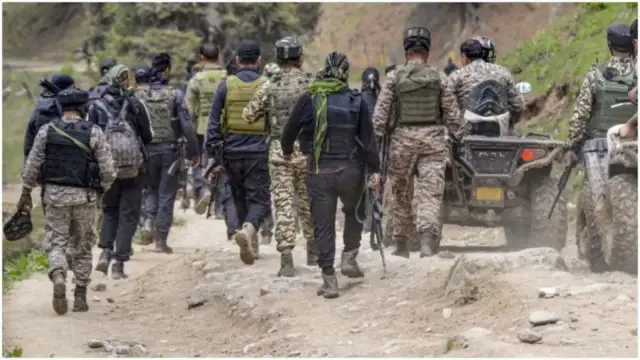India's rise! How Modi balanced relations with BRICS, G7 amid east-west divides
India’s robust relations with other G7 countries underscore its ability to maintain strong ties despite isolated disputes. India’s participation in BRICS 2024 underscores its influence as a mediator.

New Delhi: India has increasingly assumed the role of a key diplomatic mediator, skillfully balancing alliances with diverse global entities, including BRICS nations such as Russia and China, and influential Western nations within the G7. By managing these relationships adeptly, India has avoided significant criticism from Western powers, positioning itself as a diplomatic bridge capable of navigating complex global interests.
The recent BRICS summit in Kazan, Russia, offered a glimpse into India's rising role. At the summit, Prime Minister Narendra Modi engaged with prominent leaders, including Russia’s President Vladimir Putin and China’s President Xi Jinping, underscoring India’s commitment to global peace and multilateral cooperation. Noted global analyst Ian Bremmer praised India’s leadership in the Global South, particularly its steady diplomatic relations with China despite past regional tensions.
Strategic Diplomatic Relations with China and Russia
Prime Minister Modi’s dialogue with President Xi Jinping marked a milestone in India-China relations, as it was their first formal meeting after years of strained ties. Over the past four years, more than 30 rounds of military discussions have been held to ease tensions along the border, underscoring India’s determination to maintain regional stability. As both countries work toward resolving this longstanding issue, India’s diplomatic approach reflects its broader strategy to manage powerful neighbors while promoting peaceful co-existence.
Furthermore, India’s relationship with Russia remains a focal point. Amidst the ongoing Russia-Ukraine conflict, India has maintained a neutral stance, even as Western nations advocate for a firmer position. India’s neutrality has allowed it to serve as a potential mediator, with Modi being one of the few leaders honored by both Russian and Ukrainian officials.
Regional Security and Multilateral Initiatives
At the BRICS summit, Prime Minister Modi emphasized counter-terrorism and regional stability, urging member nations to enhance intelligence sharing and cross-border security collaborations. India’s commitment to regional security partnerships aligns with its broader strategic goals, particularly in addressing challenges related to terrorism and maritime stability across the Indo-Pacific.
Meanwhile, India’s involvement in the Russian Arctic and the Northern Sea Route (NSR) signifies its interest in expanding trade and resource collaborations in strategic areas. Ongoing projects, including Arctic vessel construction and training initiatives for Indian sailors, highlight the deepening Indo-Russian partnership.
India’s Diplomatic Challenges with Canada
India’s diplomatic ties with Canada have strained following accusations over the death of Hardeep Singh Nijjar, impacting trade and student exchanges. However, India’s robust relations with other G7 countries underscore its ability to maintain strong ties despite isolated disputes. India’s participation in BRICS 2024 underscores its influence as a mediator.
With a focus on multilateralism, India is effectively positioning itself as a stabilizing force amid global tensions, from the Russia-Ukraine conflict to security issues in the Indo-Pacific. Its unique status as a non-aligned nation enhances its ability to bridge diverse international interests, paving the way for India to shape global diplomacy in the years ahead.













